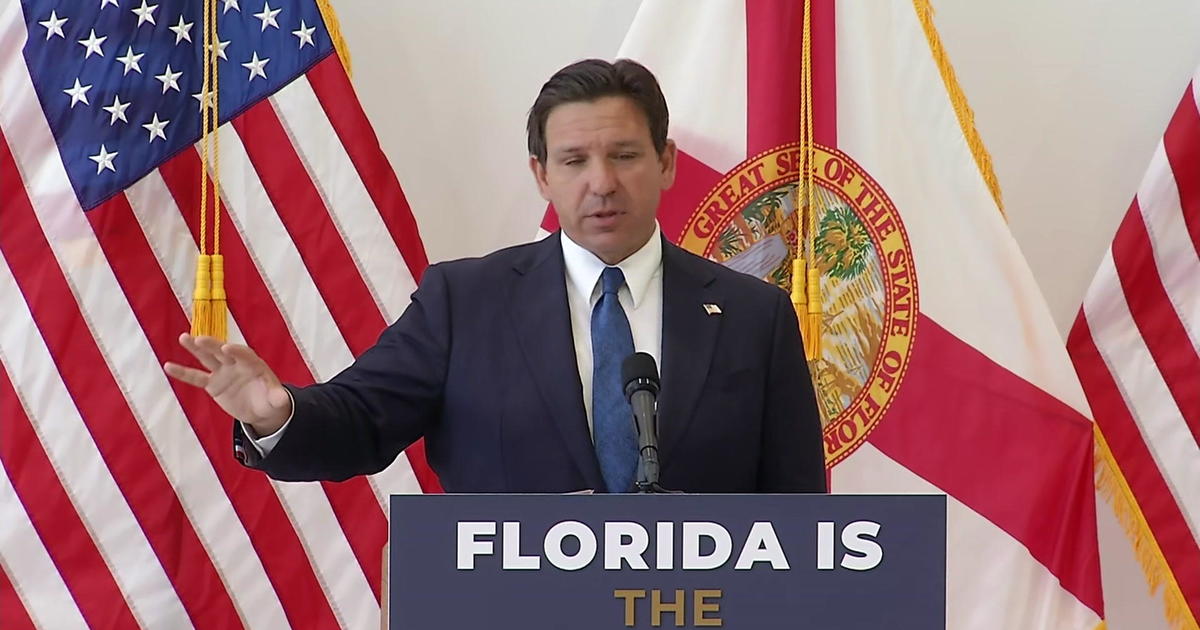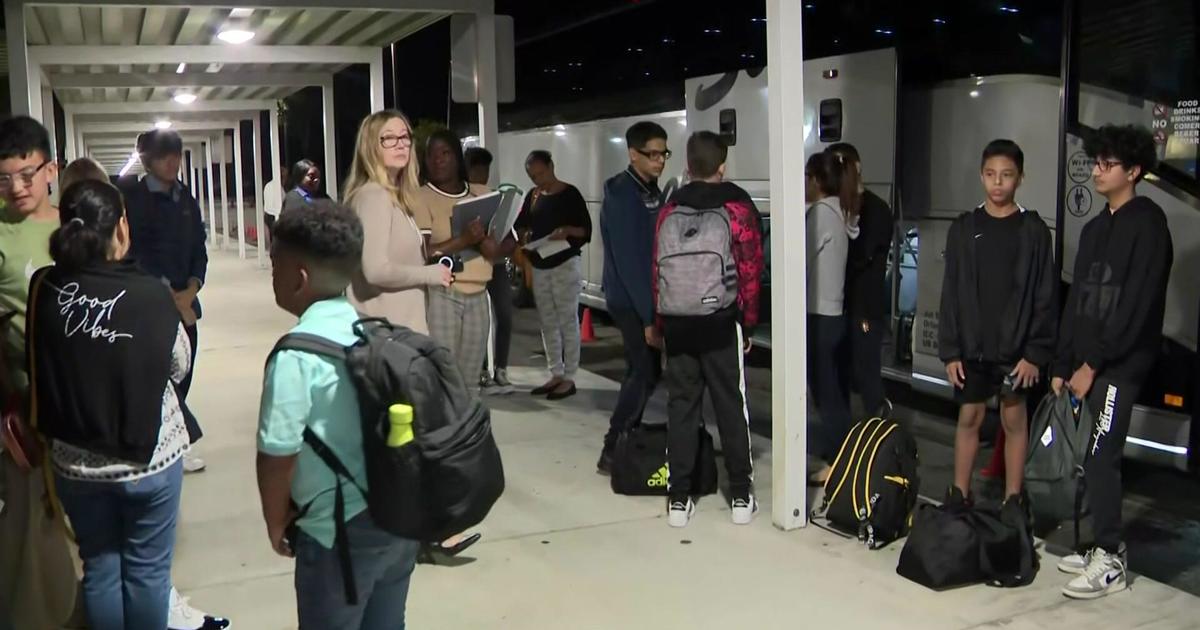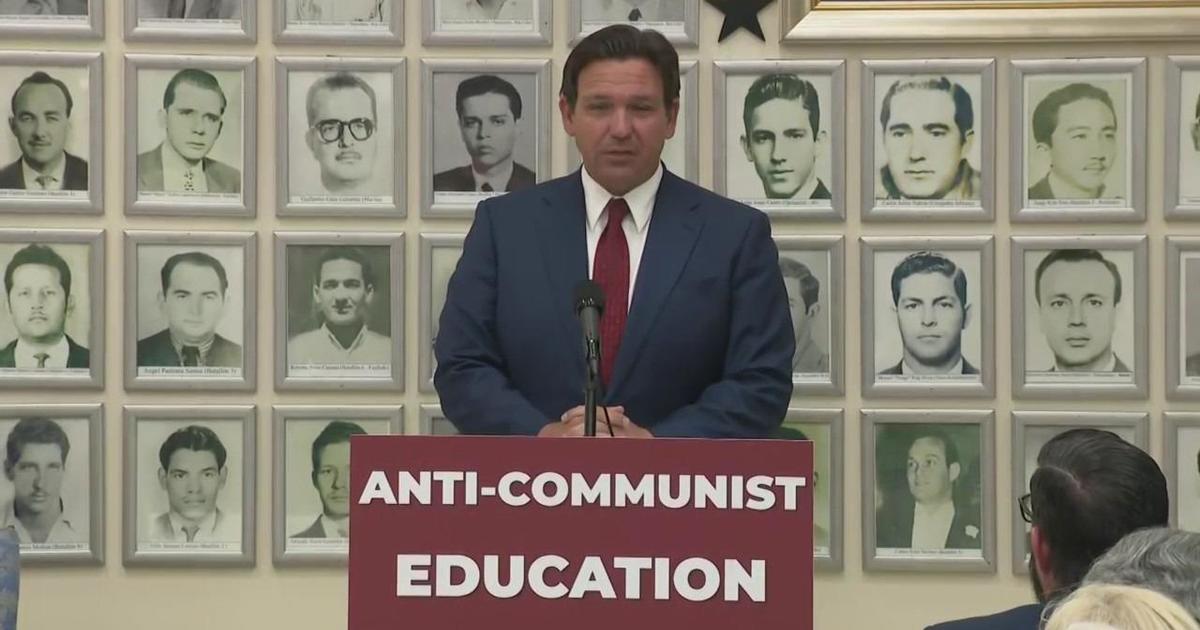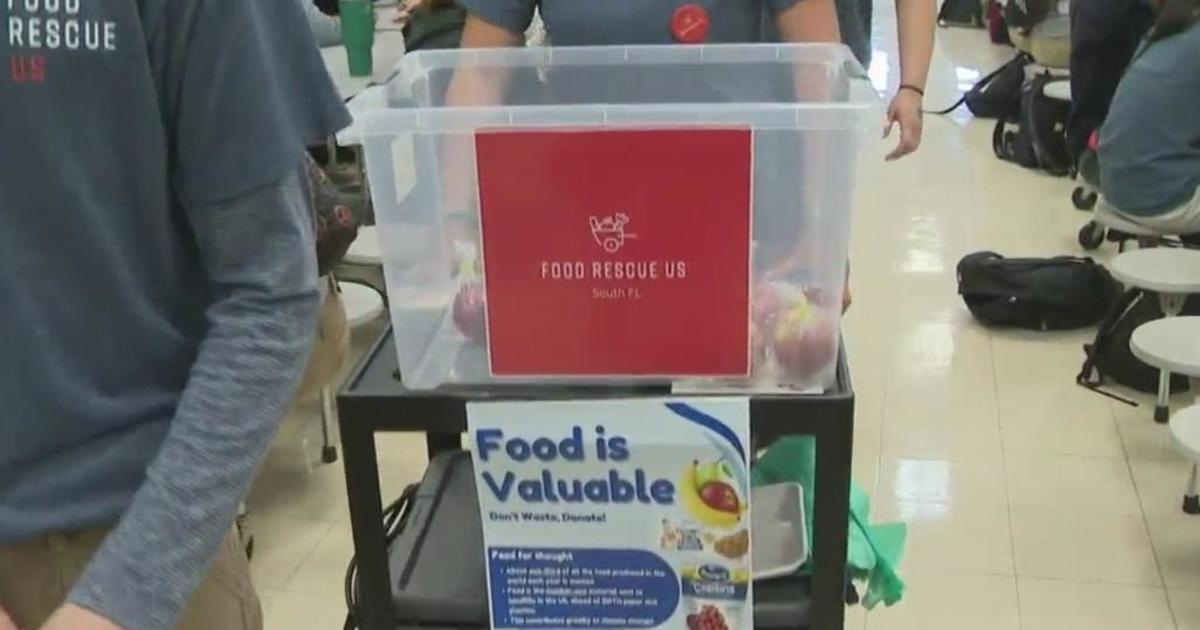Voucher Bill Passes House Amid Conflict With Senate
TALLAHASSEE (CBSMiami/NSF) - The House approved a bill Friday that would dramatically expand the ranks of students eligible for the state's de facto school-voucher system, sending the proposal headlong into a squabble between House and Senate leaders over how to measure the program's effects.
The bill (HB 7167) passed on a nearly party-line vote, 73-43, with Rep. Tom Goodson, R-Titusville, joining every Democrat who voted on the bill in opposing it. Voucher bills have traditionally split the Democratic caucus between those who see the program as a way to help lower-income students escape failing schools and those who see it as a scheme to chip away at public education.
The disagreement that might matter more to the legislation's ultimate chances, though, is a difference between House Speaker Will Weatherford, R-Wesley Chapel, and Senate President Don Gaetz, R-Niceville, about whether to demand more accountability from private schools that accept vouchers.
Even before the House approved the bill, Gaetz told reporters that the measure wasn't good enough for the Senate.
"There is no accountability provision in the House bill, and I think I still want to be faithful to the understanding that Speaker Weatherford and I had, when we articulated our work plan, that we would try to expand school choice with accountability," Gaetz said.
The joint House-Senate work plan was supposed to guide the work of the Legislature through the session, though the voucher component of that plan was disrupted last month, when Senate leaders abruptly shelved their version of the voucher legislation.
The House responded by combining the voucher bill with a measure that would reimburse parents of students with disabilities for the cost of some educational services.
The voucher system, technically called the Tax Credit Scholarship Program, provides tax breaks to companies that donate money to nonprofit entities that pay for low-income children to go to private schools.
The bill would expand eligibility for the voucher program by allowing middle-class Floridians to qualify. A family of four earning up to $62,010 a year would be eligible for at least a partial scholarship, a nearly $20,000 boost from the current $43,568 annual income limit. The value of each individual scholarship would also rise.
Weatherford, who pointedly noted the death of the Senate bill, insisted the bill approved by the House, as well as current law about the program, has its share of accountability. But he ruled out any discussion on whether students at private schools would be required to take the same tests the state administers to public-school students.
"I am all for looking for new ways to bring accountability to a program, but what I'm not for is making private school students take public school tests," he said. "I don't think you'll see any movement from the House on that."
But Gaetz, who told The News Service of Florida in February that students in the program should be measured by "the same or similar assessment," now says the issue has never been which tests students take. Students in the voucher program are required to take one of several tests that measure student learning, but not the state assessment.
"The difference is that the Senate position is, and I think will continue to be, that there has to be a way to validly and reliably report to parents and report to teachers and report to the community about student performance," Gaetz said.
Weatherford did not rule out some compromise.
"The good news for Senate President Gaetz, who's a good friend of mine, is that now he has the bill," Weatherford said. "We just sent him a bill. He now controls it. And we'd be more than willing to take a look at what he wants to send us."
Largely spectators to the battle between Gaetz and Weatherford, House Democrats who debated the bill Friday hammered away at the measure for a variety of reasons, from arguments that it bleeds money from the public school system to accusations that the bill is moving at the behest of private education companies.
"We all know it's not about the kids, and it's really never been about the kids," said Rep. Irv Slosberg, D-Boca Raton. "The bills are really about expanding business opportunities for the (for-profit) school management companies. ... The education of our children should not be promoted and sold like a product in a marketplace."
Republicans countered that Democrats were merely trying to shield public schools -- and, by extension, the Democrats' political allies in the state's teachers unions.
"Our job here today is not to protect the current bureaucracies," said Rep. Janet Adkins, R-Fernandina Beach. "It is to ensure that our students have access to the educational environment that best meets their needs."
This report is by Brandon Larrabee with The News Service of Florida.



